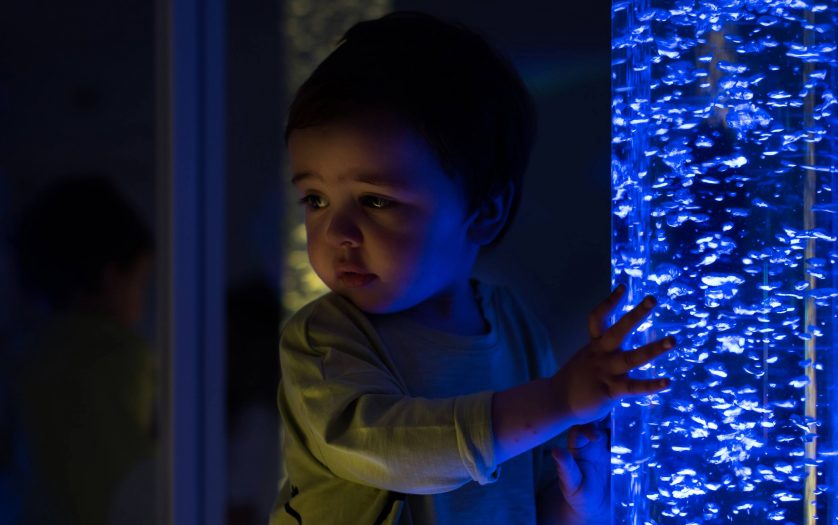
Researchers at the Qatar Biomedical Research Institute (QBRI) have demonstrated that an innovative eye gaze-based screening tool successfully diagnoses autism in young children, according to new findings published in Autism Research.
Eye-gaze tracking is considered one of the most important biomarkers for autism. Impaired gaze and social attention patterns are among the early signs of autism.
In 2016, Dr. Thomas Frazier (then director of Cleveland Clinic Children’s Centre for Autism) used this disparity to develop the first objective diagnostic tool called the “autism risk index.”
Using an LCD monitor with a remote eye tracker, children are shown visual stimuli to evaluate their gaze.
An algorithm generates a diagnosis based on the risk index in less than 10 minutes and a success rate of over 85%. The tool can be used safely on infants as young as six months old, signaling a significant advancement in the early diagnosis of autism.
The joint research paper highlighted the findings of eye-tracking assessments on over 500 youths, aged 1-17, in Qatar and the US.
The study included 150 people with autism from Qatar, and 130 participants were used as controls. Of major significance is the consistency of the results between the young subjects tested in Qatar and the US.
According to the research findings, this is the most extensive study of its kind to characterise the structure of social attention – and the only one to examine cross-cultural consistency.
“We are very pleased to report these optimistic study findings, and we foresee a positive impact. Diagnosing autism as early as possible means treating or intervening earlier to give families and individuals with autism better long-term outcomes. “We hope to continue this collaboration with Cleveland Clinic, which will enable QBRI to introduce this technology in Qatar and the Arab region and work with stakeholders to extend its benefits to communities.” said Dr. Alshaban.
“As a global hub for biomedical and translational research, QBRI constantly seeks to strengthen its collaborations and strategic partnerships with international partners. Our cooperation with Cleveland Clinic Foundation, which aims towards diagnosing autism at an early stage, reflects QBRI’s mission to transform novel scientific discoveries into efficient solutions that address Qatar’s health priorities.“ said Dr. Omar El-Agnaf, executive director at QBRI.








